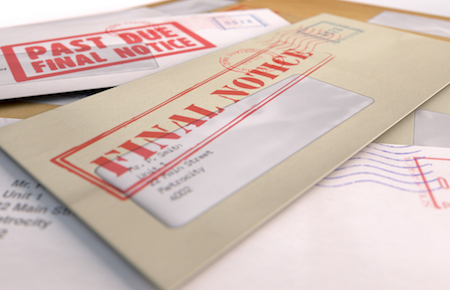Some people aren’t good at managing money. Perhaps they are impulsive shoppers, or maybe they just can’t keep track of whether they are spending more than they are making each month.
The issue becomes a bit trickier, however, when the compulsive overspender is your ex – and you’re either planning or in the middle of getting a divorce.
Should you expect to be financially responsible for part of their debts? Or are they on their own once all the agreements are signed and final?
Debt treated like assets
Deciding how much of the debt each party is responsible for is handled in much the same way as property division, which means that any debts that accumulated during the marriage are considered to belong to both parties in the equation.
The total debt owned by the married couple will be divided during the divorce process in a way that is fair to both parties. This doesn’t necessarily mean that the debt will be divided equally. If one party is able to provide evidence or an argument for how their partner was responsible for growing the debt without benefiting the marital unit then the split may not be 50/50.
In addition, in a scenario when one party only has debt and no assets their net worth will not be a negative value, it will simply be zero. This is to say, that there must be assets to factor against the debt because although the calculation will apportion the debt between the parties the fact remains that the party legally responsible for the debt will remain legally responsible to pay it back (see below).
Responsibility of paying back the debt
Another thing to keep in mind is that the legal responsibility for paying back money rests with the one whose name was on the original contract for the debt; regardless of if the courts have decided the other party is required to make payments.
This can result in creditors calling to collect on payments that you are not required to pay for, but that you are still legally responsible for. If you encounter problems like this, it is important to contact your lawyer so that you can get advice about the best way to set up your accounts and payments to prevent misunderstandings.
Being proactive
The best way to prevent the sudden surprise of having to take on extra debt because of your partner’s spending is to consult with a divorce lawyer in advance. The longer the spending goes on the more difficult it is to reapportion the debt between the parties from a family law, division of assets, perspective.
You will need to form a strategy on how you can present your case and avoid taking on additional debt that you shouldn’t be responsible for.
